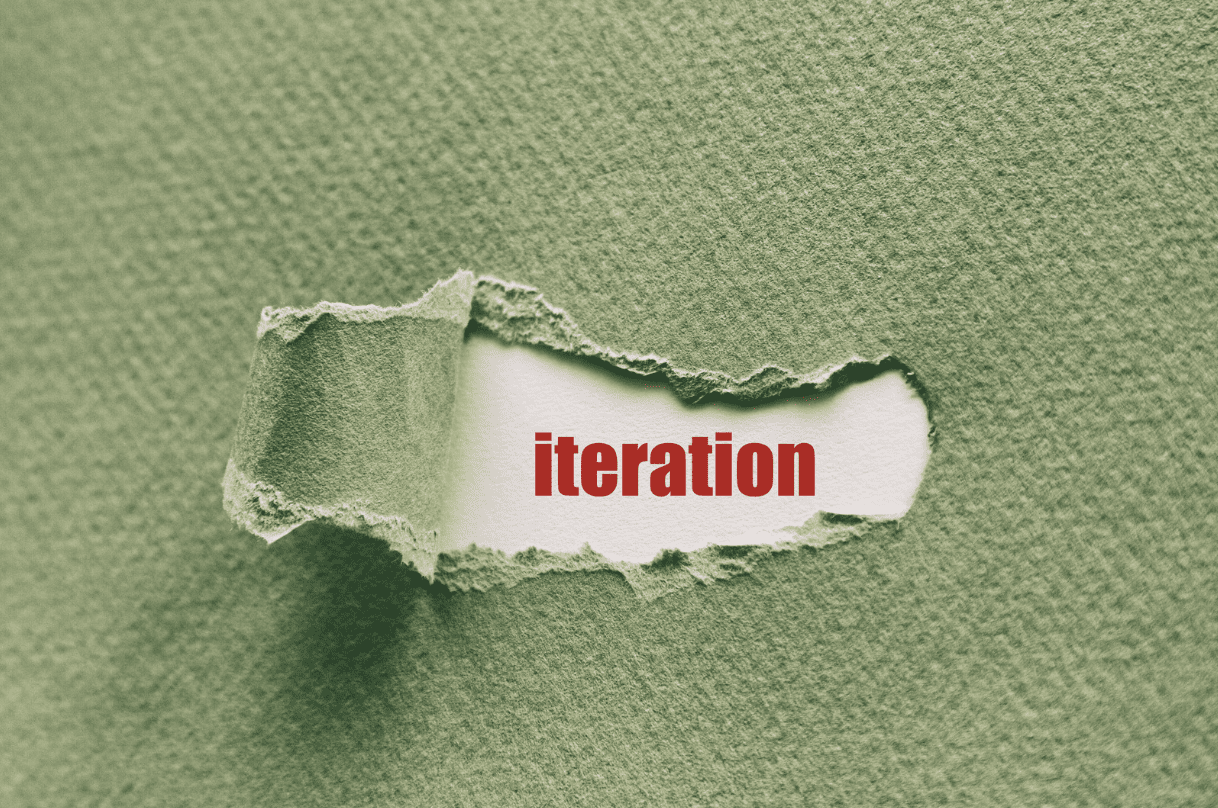Trial, Error, and (Eventual) Triumph: Case Studies in Effective Iteration
Iteration, repeating a process to get closer to a desired goal or solution, is a critical component of growth and achievement.
At FreshTri, we firmly believe that adopting an iterative mindset is the key to unlocking healthier habits and lifestyles. Through our Iterative Mindset Method™, we guide and support our clients in reframing setbacks as opportunities to learn and pave the way for future success.
We’ve previously discussed how successful companies use iteration and how the concept of iteration can be applied to many industries, practices, and famous figures—today, we’ll share a few examples of how iteration works in real life and how you can adopt an iterative mindset in your health and wellness routines.
What is Iteration?
Iteration means repeating a process, slightly tweaking your approach over time, with the aim of reaching a desired goal or outcome. In essence, it refers to trying something, evaluating the results, making adjustments, and trying again.This cycle of trial, error, and refinement allows room for flexibility and continuous improvement, and removes the concept of failure from the equation.
The iterative process stands in contrast to a more rigid, linear approach of pursuing one fixed solution. With a linear approach, you stick to one inflexible plan, unable to accommodate mistakes or roadblocks. In the linear model, if you fail, that’s the end of the road. In an iterative process, failure doesn’t exist. You simply take the information from what didn’t work, tweak it, and try again with new data points.
Iteration enables you to course-correct as needed to eventually achieve success.
The benefits of adopting an iterative mindset include:
- Flexibility: With iteration, there’s no prescriptive path to success. It allows for intentional customization based on your unique results.
- Adaptability: Iteration enables you to adapt your strategies and pivot if your plan doesn’t feel right for you. For example, maybe someone decided to start a new running plan, but they realized it was too hard on their knees, so they adapt their exercise plan to cycling instead.
- Continuous improvement: Each cycle of iteration gets you closer to your goals through refinement and learning—you’ll notice your progress compounding over time.
- Accelerated growth: Iteration enables rapid learning and improvement through active trial and error. The quick feedback loops allow for more robust results.
- Resilience: An iterative mindset builds confidence in overcoming setbacks or roadblocks by rerouting based on insights gained. Failures become assets.
Iteration is a powerful framework for achievement. By replacing rigid, linear thinking with flexible, iterative progress, you open doors for transformative and lasting change.
Interested in a few examples of the iterative process at work in health and wellness routines? Read on for inspiration.
Case Study 1: Fitness Journey
Chase began his fitness journey after years of living a sedentary lifestyle. After joining a gym, he started aggressively exercising for two hours a day, six days a week, against a trainer’s advice. This led to burnout, soreness, and fatigue, causing Chase to quit after two weeks and abandon his goals to become stronger and increase his physical fitness.
With guidance from Fresh Tri, Chase adopted a more iterative approach—starting with lighter 30-minute workouts three days a week, focusing on proper form and technique. After two months, he had built up a solid foundation without pain or burnout.
Chase found success in adopting healthier habits with this iterative mindset. He continues to apply iteration, increasing workout frequency, intensity, and variety in tune with his energy levels and recovery needs. In one year, he lost 50 pounds and reached several fitness goals through the power of small, iterative progress.
Case Study 2: Healthy Eating Habits
Joy wanted to improve her eating habits by incorporating more whole, unprocessed foods. Her initial attempts consisted of incorporating complex recipes and restrictive diets that required significant meal prep time.
These drastic changes proved unsustainable within Joy’s busy work schedule. She found herself reverting to her old fast food habits for convenience. By embracing Fresh Tri’s Iterative Mindset Method™, Joy made incremental changes—starting with simple meal prep strategies like batch cooking grains and vegetables on Sundays.
Over time, through continuous iteration, Joy built up a repertoire of quick and healthy recipes that fit her lifestyle and specific nutrition needs. Instead of pursuing perfection, she focused on consistency and gradual improvements. Now, Joy happily maintains a nutrient-rich diet optimized for her needs.
Case Study 3: Stress Management
James was struggling to manage his stress levels, which was negatively impacting his sleep, mood, and relationships. His initial approach relied on unhealthy coping mechanisms like drinking and lashing out emotionally.
By applying FreshTri’s Iterative Mindset, James was able to gradually develop healthy and sustainable stress management techniques. Beginning with foundational changes like establishing a consistent sleep routine, he built momentum. Over time, James incorporated breathing techniques, exercise, social connection, and mindfulness practices to serve as positive outlets for managing his stress.
When some strategies were ineffective, such as deep breathing exercises that didn’t make him feel any less stressed, James was open to trying new approaches until he found what worked for him. Today, James has clarity and confidence in managing stress through the tools he built through iteration.
Case Study 4: Positive Thinking
Michelle struggled with negative self-talk and pessimism, which took a toll on her confidence and overall outlook. Her initial approach was to just “think positive,” which felt inauthentic and ineffective.
With FreshTri’s iterative method, Michelle learned to reframe negative thoughts over time through incremental steps. She started small by writing down three positive affirmations daily. Over weeks and months, Michelle gradually increased to five affirmations, then seven, and eventually developed a robust gratitude practice.
When overly positive thinking backfired, Michelle course-corrected by balancing it with self-compassion and acceptance. By iterating without judgment, she found a healthy middle ground. Now Michelle harnesses daily positive thinking tools customized to her needs through trial and error iteration. Her inner voice is calm, compassionate, and grounded.
Iterate Your Way to Improved Health and Wellness
As illustrated through these examples, adopting an iterative mindset is critical for making progress on your health and wellness goals. By being flexible, adaptable, and focused on gradual improvement through multiple cycles of trial and refinement, you can overcome obstacles, learn from setbacks, and achieve transformative growth.
FreshTri’s Iterative Mindset Method™ leverages these principles of iteration to provide structure, guidance, and support on your unique journey toward healthier habits and lifestyles. By learning from your experiences, adjusting your approach, and building on small wins, you, too, can find success.
Ready to get started on building some healthier habits? The Fresh Tri app is free and will guide you through using iteration to reach your goals, no matter how big or small. The app is full of video lessons, healthy recipes, exercise ideas, and a supportive community to act as a sounding board. Begin your journey with an iterative mindset—one small step after another will get you where you want to go!












